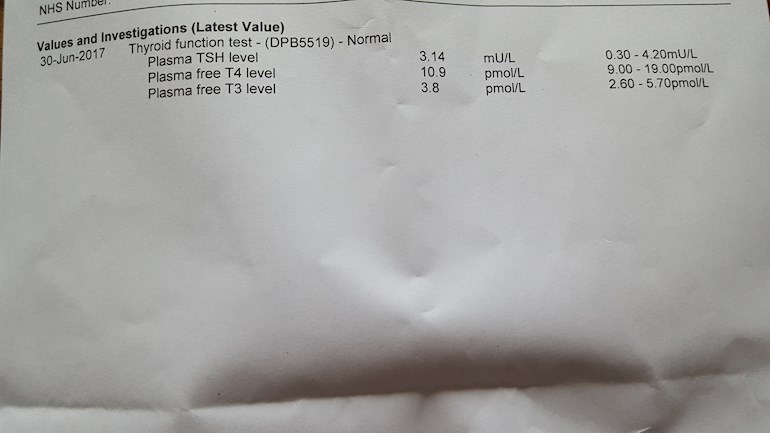Despite having been diagnosed with hypothyroidism at the age of 14 (I'm now 39) I've only just started investigating it recently. This is mainly because I don't believe in my depression diagnosis. I've been treated for depression off and on, although mainly on, since my early 20's but never really considered it could be thyroid related. I've never been symptom free so have recently started on my journey to get the right treatment for me. It's early days as I've only just had a T3 test!
So my question as per the title, is what is the benefit of asking my GP to test for thyroid antibodies? Presumably treatment doesn't change either way?
I've posted a pic of my results in case anyone's interested or has any comments 😊 I'm grateful for any input!!

